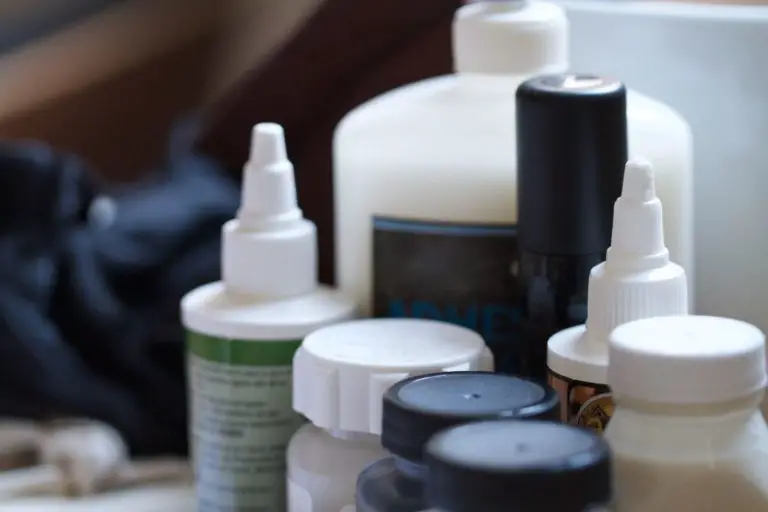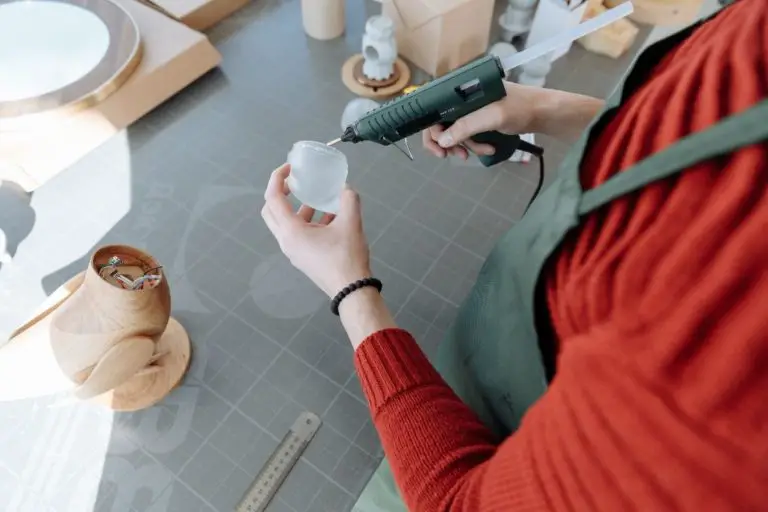Are Hot Glue Fumes Toxic? What Happens if You Inhale Them?
Hot glue is considered to be safe for household use as it’s made from non-toxic and acid-free ingredients. However, it can release some fumes when it’s applied which raises some concerns regarding whether these fumes are safe to be inhaled.
So, are hot glue fumes toxic? Hot glue fumes are normally not toxic as the glue is made from harmless ingredients. If the glue was heated at a suitable temperature, the fumes will only cause slight discomfort to individuals with existing respiratory problems. However, if the glue was overheated, the fumes might become more harmful or toxic.
Keep reading to learn more about hot glue, when it might release toxic fumes, and how to protect yourself from inhaling these fumes.
Contents
What Is Hot Glue?

Hot glue, also known as hot melt glue or HMA, is a synthetic adhesive made of a base chemical called ethylene-vinyl acetate (EVA). This chemical is combined with various additives that act as tackifiers which give the glue its adhesive properties.
It comes in the form of solid cylindrical sticks of various diameters and it’s applied using a hot glue gun. It can be applied on various kinds of surfaces including paper, fabric, rubber, ceramic, metal, plastic, glass, and wood
Does Hot Glue Release Toxic Fumes?
All kinds of hot glue will release fumes when they’re applied. The toxicity of these fumes will mainly depend on what the glue is made of and its temperatures.
Hot glue doesn’t contain any harmful ingredients, so if it’s heated at the right temperature, it will not release any toxic fumes.
However, if the hot glue gets overheated, the fumes released might become more harmful and even toxic to some extent.
What Happens If You Inhale Hot Glue Fumes?

Inhaling an increased concentration of hot glue fumes, toxic or not, will cause discomfort and irritation especially for individuals with existing respiratory problems.
If the fumes inhaled were toxic, you might experience symptoms that are more severe such as headaches, dizziness, and in some cases nausea and vomiting.
Prolonged exposure to toxic glue fumes might cause long-term damage to your lungs that leads to acute respiratory failure. It might also weaken your immune system and cause some neurological problems like hallucinations or seizures.
How to Reduce Hot Glue Fumes?
There are some measures you can take to protect yourself from inhaling large amounts of hot glue fumes and to prevent these fumes from becoming toxic.
- Hot glue guns are typically built with thermostatically-controlled heaters to ensure it runs at a safe operating temperature. So, always make sure that your hot glue gun heater is functioning properly before applying the glue.
- Try not to use the gun for over 30 minutes to prevent overheating and make sure the temperature of the glue doesn’t go above 30°C-40°C.
- Make sure you’re working in a properly ventilated room when applying large amounts of hot glue. To improve the ventilation in a room, you can open all the wind to allow more fresh air and disburse any fumes released.
- Use an air purifier in the room to absorb the harmful fumes. It’s recommended to use an air purifier with a carbon filter as it can absorb a large amount of harmful fumes from the air in a short period of time. However, make sure to change the filter regularly because once it is saturated, the filter will begin releasing the harmful fumes back into the room.
Related Questions
Can You Eat Hot Glue Sticks?
You can eat hot glue sticks as they are made mostly of non-toxic ingredients, however, it’s highly not recommended. Your stomach will not be able to digest the glue and will try to expel it out of your body causing severe abdominal pain and vomiting. Also, large pieces of the glue stick might get stuck in your throat causing you to suffocate.
How Long Does the Smell of Glue Last?
The smell of glue can last from 12 to 24 hours, depending on how fast the glue dries. Without proper ventilation, the smell can build up in the room which can be unpleasant and sometimes even harmful. It’s recommended to work in a properly ventilated room or to exist the room until the smell dissipates.
Helpful Resources
If you like this article, share it!

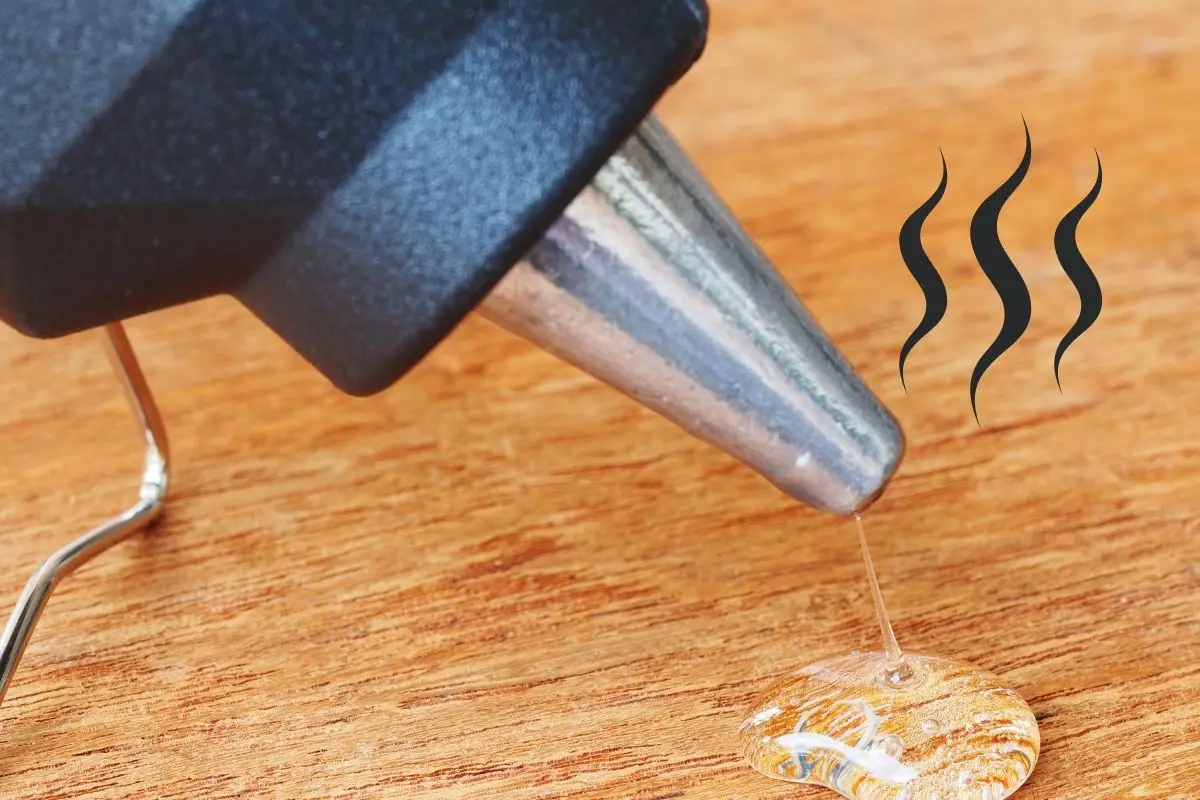
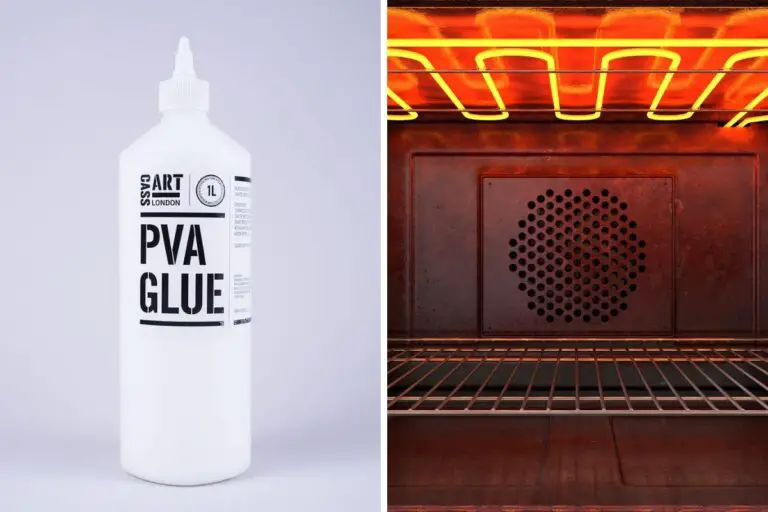
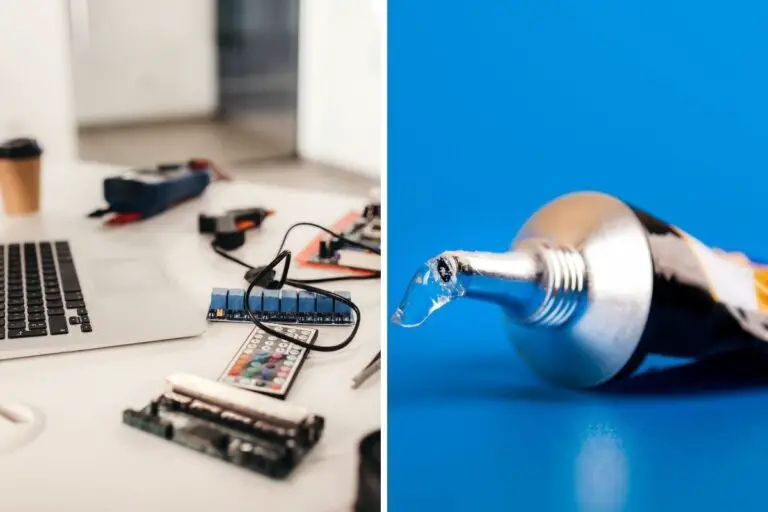
![When to Glue Drywall? [+ How & What Glue Types to Use]](https://simpleglue.com/wp-content/uploads/2021/11/finishing-drywalls-768x512.jpeg)
